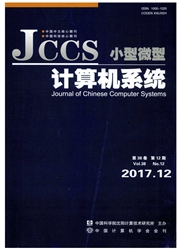

 中文摘要:
中文摘要:
本文运用协整分析,误差修正模型,格兰杰因果检验,脉冲响应函数和方差分解的方法,对1985—2009年间江苏省能源消费总量和实际GDP的动态关系进行研究。结果表明,长期看来能源消费总量和实际GDP之间存在稳定的静态关系,并且存在从经济增长到能源消费的单向因果关系,说明江苏经济增长能有效的引发能源消费,反之不然。误差修正模型表明系统存在较好的反向修正机制,可以有效调节两者之间的短期偏离;而相应的评价准则说明了该模型具有较强的预测能力。脉冲响应和方差分解的结果也表明在一定的滞后期内,能源消费对经济增长的贡献度或重要性在逐渐降低。所得结论和文献[7]中的结果不同,说明近几年来,随着江苏省能源政策的调整,经济增长对能源的依赖性在逐渐减小,能源利用效率不断提高。最后在研究基础上提出了江苏省经济发展与节能降耗的对策建议。
 英文摘要:
英文摘要:
The dynamic relationship of energy consumption and economic growth in Jiangsu province was tested through co-integration analysis, error correction model, Granger causality test, impulse response function and variance decomposition method. The empirical results showed that there is a long-run equilibrium relation between energy consumption and economic growth. In addition, single-direction Granger causality relation from economic growth to energy consumption is found, indica- ting that the economic growth in Jiangsu province is not dependent on energy consumption. Error correction model means the short-run fluctuation can be adjusted effectively while the evaluation indexes indicate that future value can be forecasted effectively. Impulse function and variance decomposition also means that the importance of energy consumption to economic growth is decreasing, which is different from that of reference. All results indicate energy utilization efficiency is improved and dependence of economy growth on energy is decreasing with the adjustment of Jiangsu's energy policy. Finally, some countermeasures and suggestions on economic growth and energy saving are proposed based on the results.
 同期刊论文项目
同期刊论文项目
 同项目期刊论文
同项目期刊论文
 期刊信息
期刊信息
